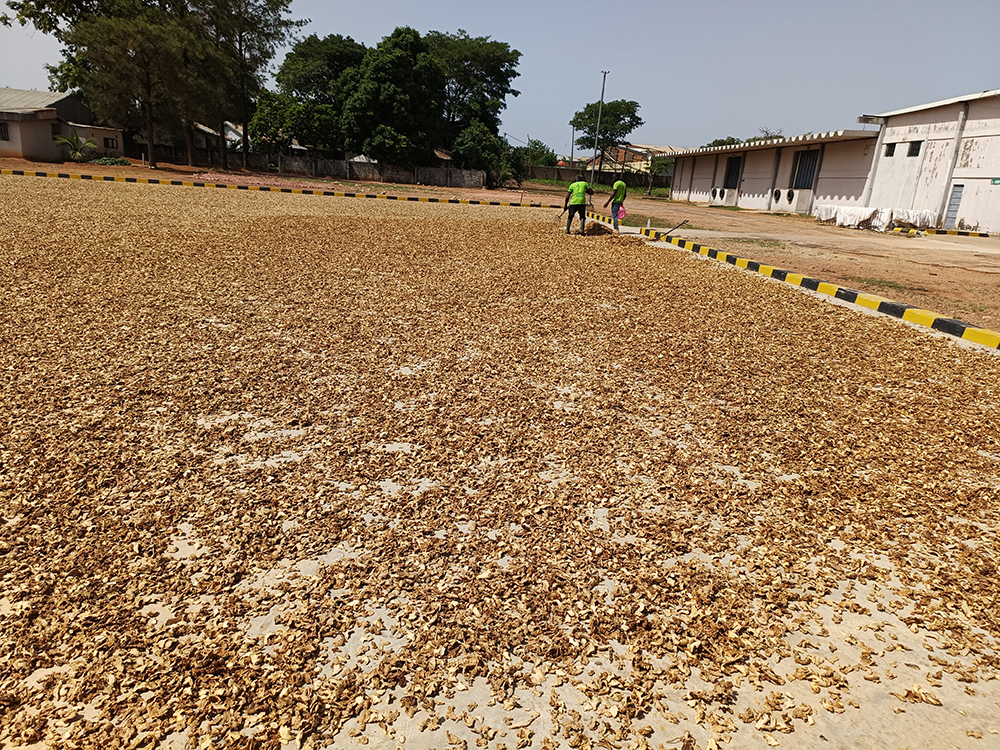Ugandan farmers, SMEs to benefit from sh17.5b global venture capital firm loan
Sarah Nansubuga, a food processor who runs a mid-sized juice and dried fruit enterprise in Mukono, said the news offered encouragement for SMEs like hers.
Employees sorting and grading dried ginger at the Horizon Group Africa plant in Kaduna. (Courtesy Photo)
Ugandan farmers as well as small and medium-sized enterprises (SMEs) are set to benefit from a shillings 17.5 billion loan (about $5m) that a global venture capital firm has extended, adding Uganda to a list of other African countries.
Ugandan exporters, farmers and food processors, especially those in the agriculture and fish processing sectors, stand to benefit from this funding as the global financier intends to set up shop in Uganda, specifically targeting this market.
“Uganda remains a key focus for the Global Supply Chain Support Fund (GSCSF). We see tremendous potential among Ugandan SMEs, particularly those driving export in agriculture, particularly coffee, fruits and aquaculture (Nile perch).
Our goal is to work closely with such businesses, providing innovative financing solutions and market linkages that enable them to scale sustainably and compete on a global stage,” said Darren Lobo, Director at Aavishkaar Capital, as the firm announced a shilling 17.5 billion loan to the Horizon Group Africa in Nairobi on Thursday, September 18, 2025.
The deal, facilitated by Indian-based Aavishkaar’s GSCSF in partnership with Germany’s development bank KfW, marks the Fund’s fourth major investment in Africa.
Promising opportunity
Coffee, fruits like mangoes and pineapples, and Nile perch already enjoy strong regional and global demand. However, many SMEs struggle with financing, certification and meeting international quality requirements.
For Uganda, the remarks signalled a promising opportunity. With agriculture contributing nearly a quarter of GDP and employing over 70% of the population, impact-driven capital that targets exports could transform the country’s agro-industrial landscape.
Coffee, fish and fruit exports already account for significant foreign exchange earnings, and Uganda has ambitions of expanding its role in global value chains.
The Nairobi announcement centred on Horizon Group, a spice aggregator and processor with operations in Nigeria, Tanzania and Madagascar, with Uganda now among the latest beneficiaries.
The company sources high-value spices: Ginger, turmeric, cloves, cinnamon, cardamom and black pepper and supplies markets in the EU, Asia, and the United States.
Sun drying of Ginger at .Horizon Africa's Plant in Kaduna, Nigeria.
Over 3,000 farmers
Horizon will channel the 17.5 loan into working capital, particularly the purchase of raw materials from its network of more than 3,000 farmers. The group’s strong emphasis on organic certification, farmer training, and cooperative structures allows it to meet global standards and tap into the premium organic spice market.
This approach is one that many Ugandan agro-exporters can emulate. From organic coffee grown in the Rwenzoris to pineapples from Kayunga and Nile perch from Lake Victoria, Uganda’s agricultural exports have the potential to reach more lucrative markets if backed by capital, certification, and reliable supply chain infrastructure.
Ugandan farmers, SMEs react
The announcement has already stirred optimism among Ugandan agro-exporters and farmers who see the potential for similar financing to come to Uganda.
Bashir Kinene, a Kampala-based fresh fruit exporter who deals in pineapples and mangoes for the Middle Eastern market, believes the announcement is a timely signal.
“Uganda has the quality and the supply. What we lack is the financing muscle and certification systems to consistently meet international buyers’ requirements,” Kinene said.
“If funds like Aavishkaar come in, they can bridge the financing gap, especially during peak harvest seasons when exporters need working capital to collect, sort, and ship produce. For us, it would be a complete game-changer.”
Sarah Nansubuga, a food processor who runs a mid-sized juice and dried fruit enterprise in Mukono, said the news offered encouragement for SMEs like hers.
“Export processing is capital-intensive, from buying equipment to securing certifications like HACCP or ISO,” she explained.
“When international investors show interest in Uganda, it gives processors hope that access to both finance and knowledge will improve. We can employ more youth, add value locally, and ensure farmers don’t lose income to post-harvest wastage.”
For smallholder farmers, who form the backbone of Uganda’s agricultural economy, the hope is equally strong.
Isaac Mugisa, a coffee farmer from the Rwenzori region, said he looks forward to investors targeting coffee growers.
“Our Arabica coffee is among the best in the world, but we don’t always fetch the right price because we can’t access premium markets directly,” Mugisha said.
“If financiers can help us with certification, training, and market linkages, then our incomes will rise, and we shall invest more in our farms. It is not only good for us farmers but also for Uganda’s economy.”
When the funds are finally disbursed, this will bring the firm's blend of financing, ESG focus, and global market linkages to Uganda. The impact could be transformative: higher farmer incomes, job creation in agro-processing, and stronger export receipts.